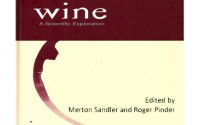Can Wine Prevent Dementia?
- Date
- 12 Dec 2017
- Start time
- 7:30 PM
- Venue
- Tempest Anderson Hall
- Speaker
- Dr Roger Pinder

Can Wine Prevent Dementia?
Dr Roger Pinder
The increasing risk of developing dementia has paralleled the rise in life expectancy. The risk is not only influenced by immutable factors like age, gender and genetic vulnerability, but also by life circumstances such as mental and physical exercise, education level, concomitant illnesses and the medications used to treat them, social factors, and diet including alcohol consumption. Dementia is now the second leading cause of death among women in the UK.
Regular consumption of moderate amounts of alcohol has been associated with a lower risk of several conditions including cardiovascular disease, ischaemic stroke and Type 2 diabetes. Dementia follows a similar pattern. Virtually all of the studies are population-based epidemiological studies of the type which showed that tobacco smoking was associated with a higher risk of lung cancer. There are few of the rigorous placebo-controlled, randomized clinical trials used for evaluating new drugs. Nevertheless, regular consumption of alcohol, particularly wine, is associated with a reduced risk for developing dementia. Red wine contains more of the factors that can interfere with the brain neurochemical processes thought to be involved in the degenerative changes seen in dementia.
Member’s report
Most members will have attended Roger Pinder’s lecture in the hope that the answer to the question would be ‘yes’. Which it was. But before reaching this conclusion, Roger led us through a consideration of the nature of evidence, and how valid deduction can be drawn. Case studies, for example, may be suggestive, but cannot by themselves prove anything, least of all cause and effect: witness, for example, the completely spurious link drawn between autism and vaccination. Ideally, establishing a strong cause-and-effect relationship between wine drinking and dementia requires elaborate randomised control trials, involving many people, over a long period of time: clearly impractical, and probably unethical.
What’s left is collecting enough data of the right sort, to establish a strong association between, say, wine drinking and health. Even this is not simple, involving as it does the judicious selecting of matched control groups, and so on; as well as assessing, for example, when people report how much wine they drink, are they reliable?
That said, the news is good. Drinking moderate amounts of red wine is strongly associated with health benefits. The incidence of Alzheimer’s disease appears to be reduced by 28% and vascular dementia by 25%, with coronary heart disease and strokes down by similar amounts. Moderate wine drinkers live up to 5 years longer. Drinking immoderate amounts, of course, tends to have the opposite effect! Roger quoted the 16th century Paracelsus to the effect that ‘poison is in everything, and no thing is without poison. The dosage makes it either a poison or a remedy.’
Scientists are now exploring the composition of red wine to identify which ingredients are actually responsible for the beneficial effects, but it will be some time before this research is of practical use. And probably even longer before Cabernet Sauvignon is available on prescription.
This was a fascinating (and reassuring) talk, on matters close to our hearts. One member, a couple of days later, claimed to have changed wine-drinking habits as a result. Clearly, attending YPS lectures – in moderation, naturally – is good for your health.
Peter Hogarth